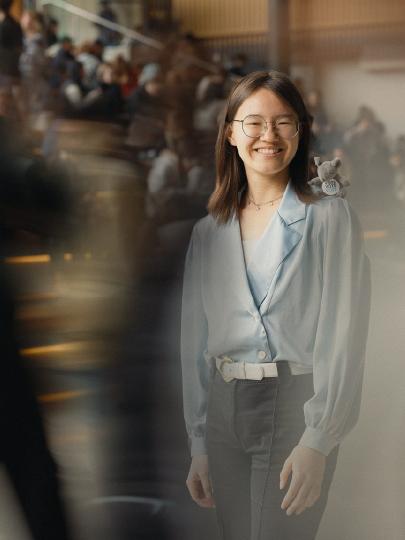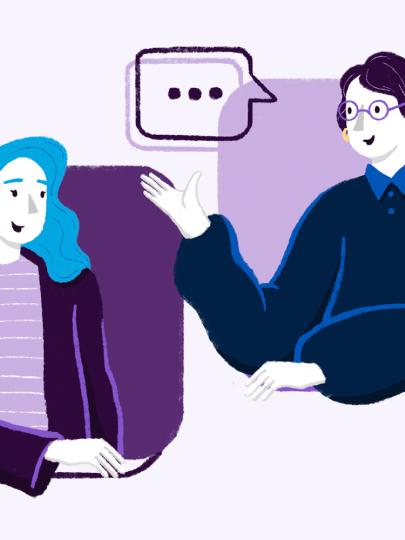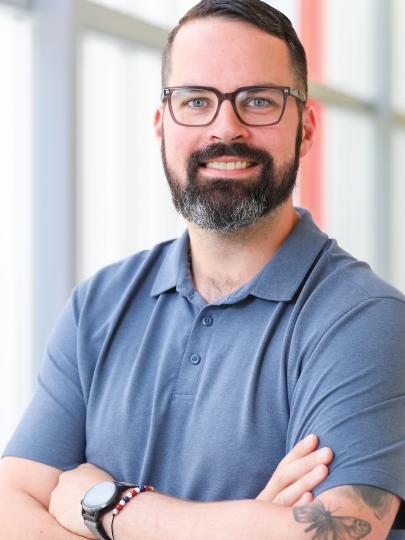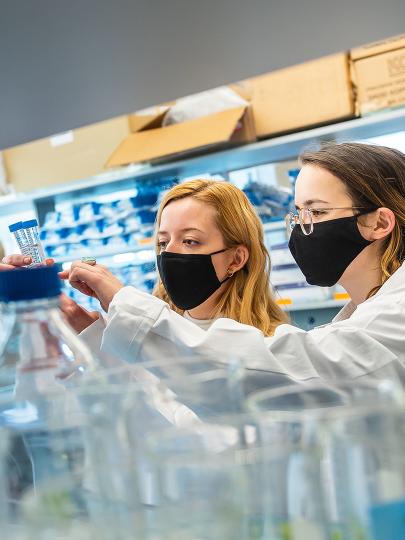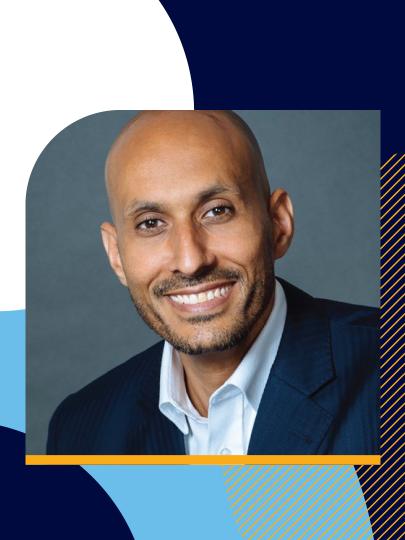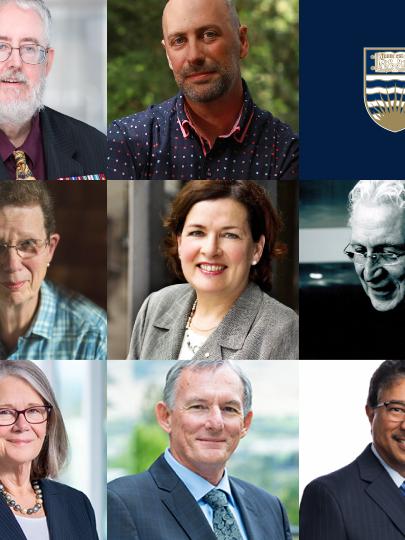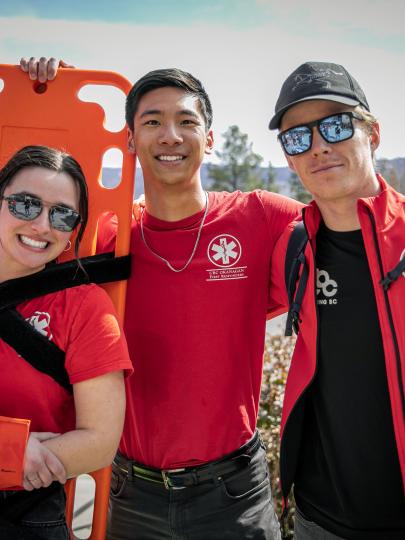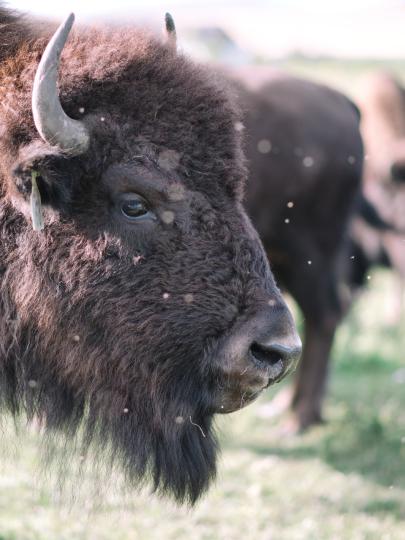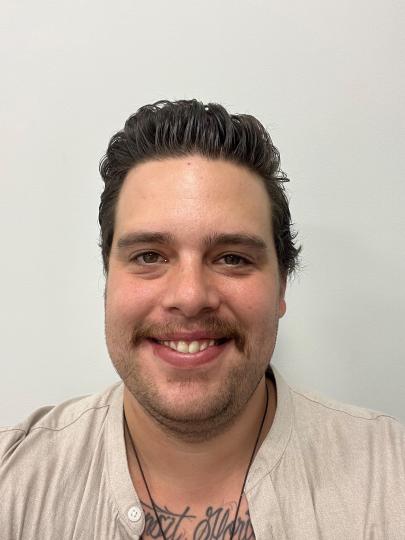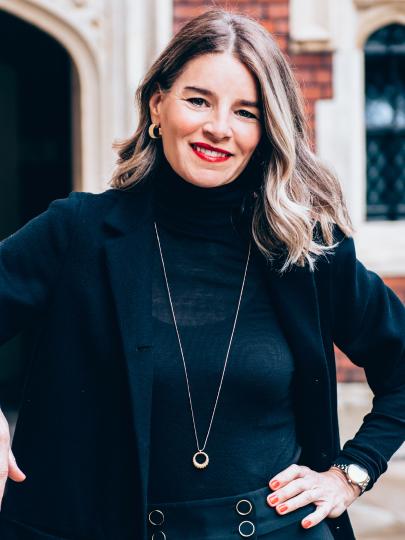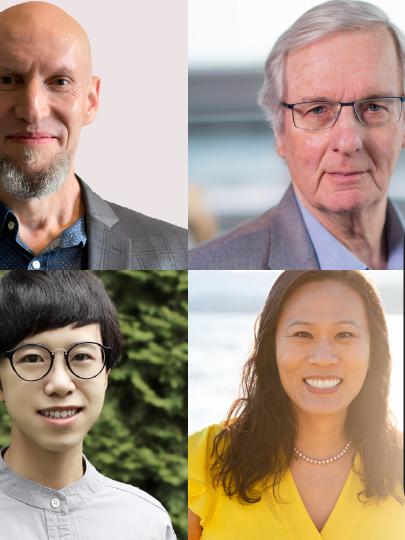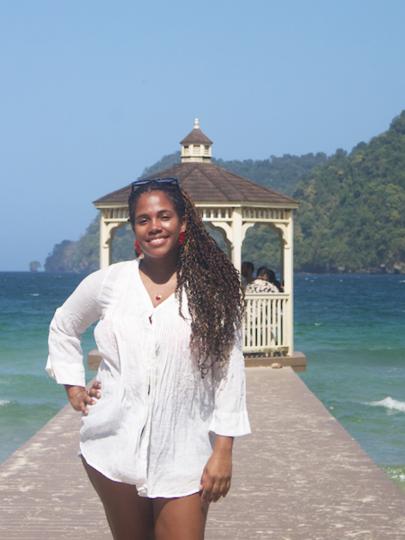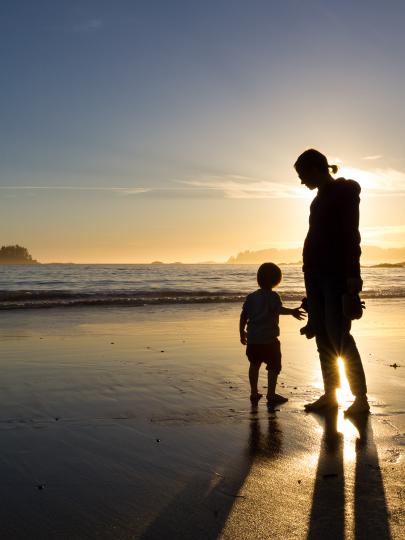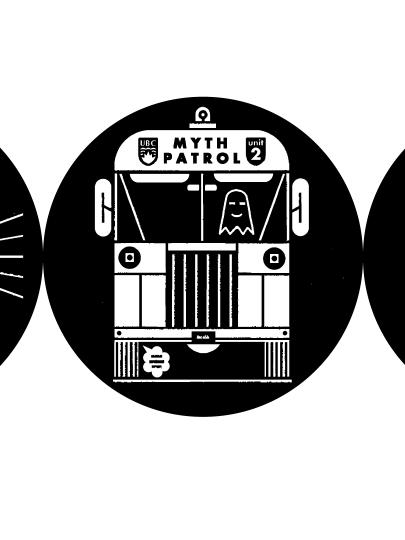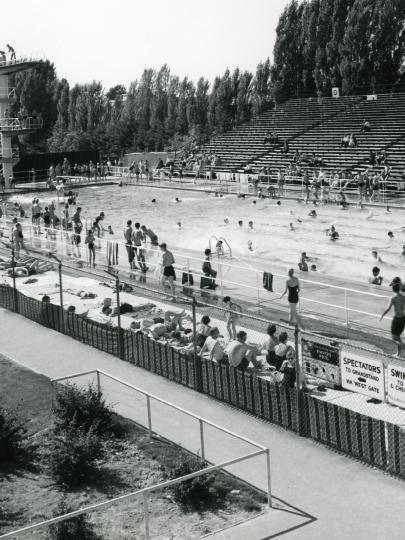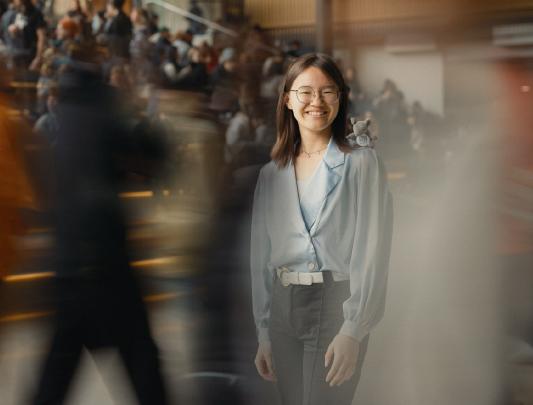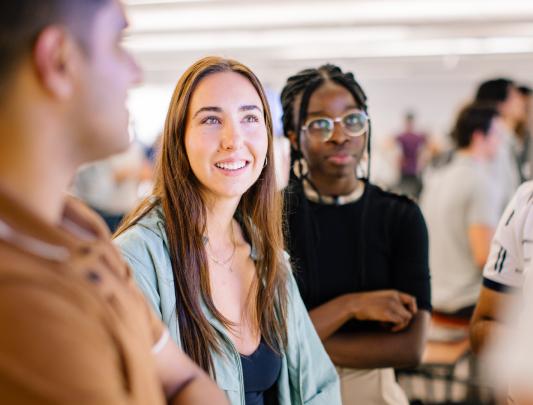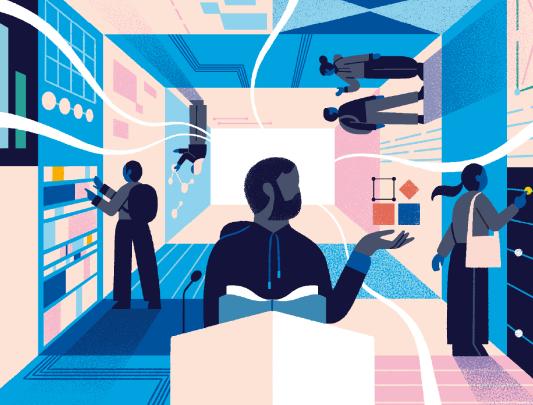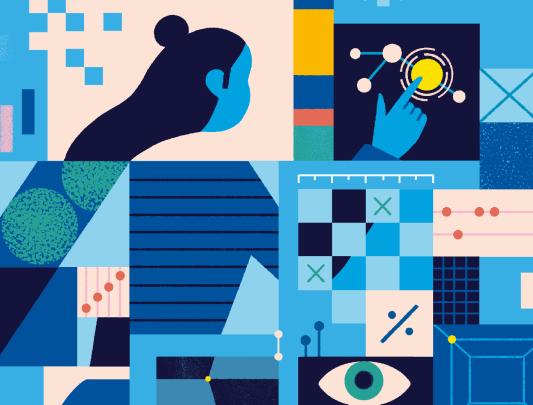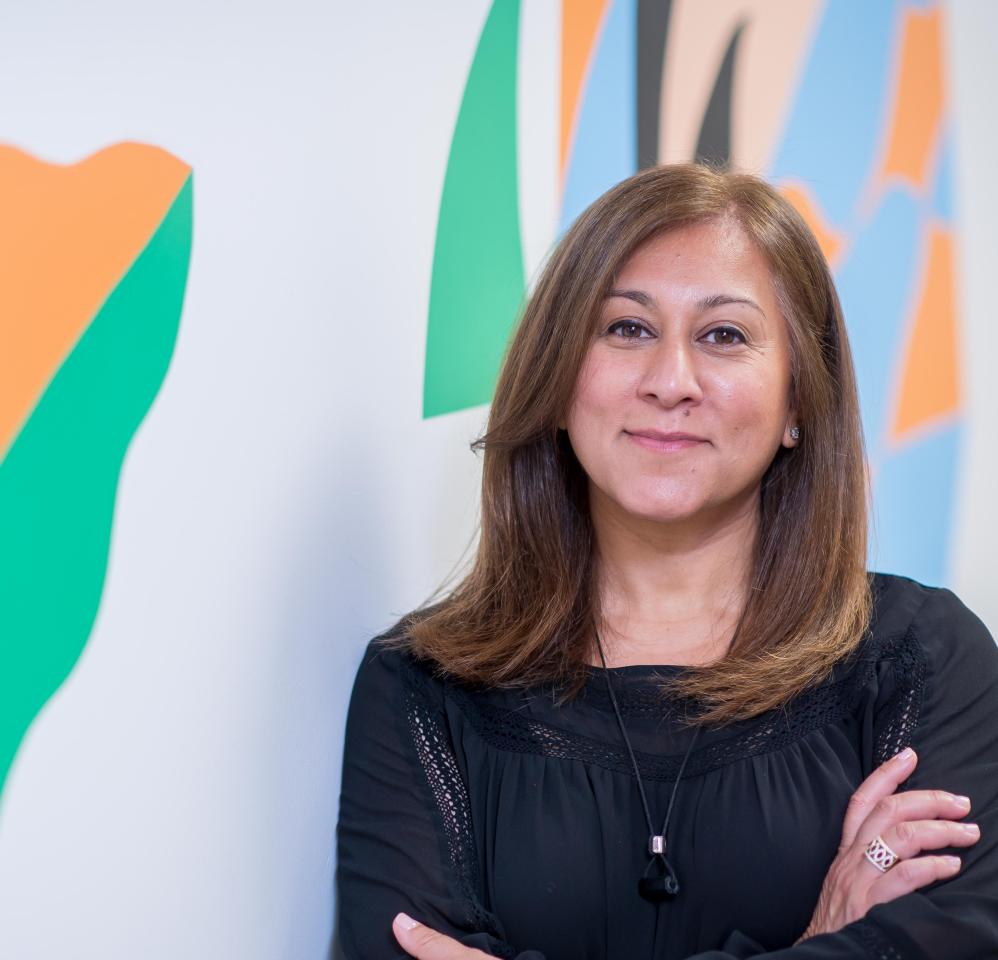
Towards culturally safe care
Meet Noorjean Hassam, UBC’s new chief student health officer, whose passion for social justice was sparked during her undergrad years — and burns as brightly as ever.
Noorjean Hassam. Photo by Paul H. Joseph / UBC Brand & Marketing.
Even over a Zoom screen, UBC alum Noorjean Hassam’s energy and enthusiasm shine through.
Noorjean (BA'92, MHA’05) is UBC’s new chief student health officer. Appointed to the role in mid-May, she oversees the health and wellbeing services that support more than 50,000 students at the Vancouver campus. This includes everything from counselling and primary care services to health promotion and education.
Ensuring that 50,000+ students have the support and services they need to stay healthy is no small feat (especially during a pandemic), but it’s a challenge that Noorjean is more than prepared for.
A graduate of UBC’s School of Population and Public Health with a Master of Health Administration — training she calls “incredible preparation” for just such a moment — Noorjean has worked in healthcare for more than 20 years. Most recently, she served as chief operating officer at the BC Centre for Disease Control where she led the logistics of the COVID-19 vaccine rollout. For an entire province.
To say that the pressure was immense is an understatement.
“We were working with such a time crunch because we needed to get this moving to save people,” she recalls. “We were working day and night, seven days a week.”
The only times Noorjean really saw her family during this intense period was when they dropped off food for her at her desk, worried she’d forget to eat. And yet, when she reflects on the innovation that resulted from working so closely, albeit remotely, with colleagues all throughout BC, who were as committed to saving lives as she was, Noorjean breaks into a smile.
“It was an incredible, incredible opportunity to just bring your hardest and your best to your work,” she says. “It was some of the hardest work I’ve ever done but I absolutely loved it.”
Bringing her hardest and best to causes that she’s passionate about is a trademark of Noorjean’s style (and something she’s been recognized for). This is particularly true when it comes to her passion for social justice, specifically: decolonizing healthcare and reimagining it in new — and just — ways.
“Our healthcare system was built by colonizers, it was influenced by racism, and we need to untangle our field from those roots of oppression,” she explains. “When I can participate in untangling from the roots of oppression, that’s my happy place.”
“During my undergrad is where I really learned what social justice was and what it meant to me, and I became an advocate." – Noorjean Hassam
Noorjean’s passion for social justice was sparked when she was studying philosophy and political science at UBC in the 90s. Speaking with an enthusiasm that would undoubtedly make her undergrad profs beam with pride, if they could but hear her, Noorjean credits her degree program for not only giving her an understanding of political and ethical issues, but also a “systems view” of the world.
“During my undergrad is where I really learned what social justice was and what it meant to me, and I became an advocate,” she says. “I also learned how to make ethical decisions, and how to pursue with passion those areas that I strongly believed in. Even more importantly, the combination of philosophy and political science helped me understand how to navigate a system, and to take the time to learn and listen to different perspectives.”
In what feels like a full circle moment, Noorjean explains that UBC’s strong focus on social justice was one reason that drew her to working at her alma mater.
“UBC has a lot of commitments for the social justice issues that I’m very passionate about,” she says, including “indigenous cultural safety, anti-racism, and equity, diversity and inclusion.”
In fact, as chief student health officer, a key part of her role is to bring to life the health-related strategies set forth in UBC’s various strategic plans, which includes the Indigenous Strategic Plan and the Inclusion Action Plan.
Working towards anti-racism, inclusion and cultural safety in health and wellbeing services begins with “educating yourself first,” Noorjean explains, and ensuring that, as a healthcare provider or practitioner, you really understand the issues at stake, who you’re serving and how you’re serving them — and, critically, who you might be leaving out.
“All of our healthcare system was created to serve a particular population in a particular way,” she says. “So just understanding that there are other ways of doing these same things that might meet the needs of underserved groups better, and finding those ways — that's really exciting for me.”
One project that Noorjean and her team already have underway is working closely with the UBC Black Caucus to ensure there are more Black counsellors on campus.
“Black counsellors are in high demand,” she explains, “and it is really important that we increase access for Black students to counsellors who they can relate to, who will understand what it's like to be Black in Canada.”
“At the same time,” she adds, “we need to respect those counsellors. We need to respect their added burdens and the impacts of their historical discrimination.”
"Resilience comes from having support, from being in a community, from having a sense of belonging and purpose in your life.” – Noorjean Hassam
As a new school year gets underway, Noorjean is deeply motivated to ensure students thrive and have the support they need to be resilient.
“Students have gone through a lot this past year,” she says. “And while I believe that students can be resilient, resilience doesn’t come just out of the air. Resilience comes from having support, from being in a community, from having a sense of belonging and purpose in your life.”
That’s why being a part of a campus community is so important and what she would tell any parent who may be feeling uneasy about their child returning to in-person learning.
As she puts it, “The mental health impacts of isolation are really well known. Bringing students back together so that they can be with their peers, so that they can create that sense of belonging, so that they can enjoy a broader and richer life — that's so critically important.”
Of course, after more than a year of remote learning, it can be challenging to jump back into life as it was pre-COVID. For any student struggling with social anxiety (or any other mental health concern), Noorjean emphasizes the importance of talking to someone — whether it’s a family member, a friend, or any of the many wellness peers and mental health professionals at UBC.
“We have mental health nurses, nurse practitioners and family physicians at the primary care clinic ready to talk to you. We've got counsellors and psychologists at Counselling Services ready to talk to you. We've got wellness advisors and peers at the Wellness Centre in the Life Building ready to talk to you,” she says. “We also have 24/7 electronic access to mental health support.”
“Any door,” she emphasizes, “is the right door.”
As students, parents and the rest of us alike adjust to a new normal this fall, Noorjean’s advice is to hang on to the healthy habits and learnings that we’ve (hopefully) picked up over the last 18 months.
“A lot of people developed really great exercise, self-care and mental health habits,” she says. “I think the most important thing is that you know yourself better than you knew yourself before. Don't lose that gift.”
“The pandemic taught us a lot,” she adds. “I think a lot of people are finding a deeper sense of self and happiness and connection. We’ve made all of these gains and it would be a shame to go back to a way of life that actually wasn’t serving us that well.”
As for what the pandemic has taught Noorjean personally?
“So much,” she says with a wry smile. But it’s telling what comes to mind first for her: optimism.
“I've always been really, really optimistic,” she explains. “But I think it put my optimism into hyperdrive.”
“The pandemic taught us a lot....I've always been really, really optimistic. But I think it put my optimism into hyperdrive.” – Noorjean Hassam
She points to how the pandemic accelerated the things that mattered to us — how it has refocused priorities, sped up processes, and made it possible to do things differently.
“I feel like there’s nothing we can’t do,” she says. “I'm doing things right now with my team at UBC that, in normal times, we would spend maybe a couple months planning. Now we’re deciding: Is one week enough, or should we push it to two? So forget the months.”
She credits changes at all levels that have made this kind of accelerated schedule possible — from executives giving the green light on projects and securing the necessary funding in record time to the ability of teams to set aside non-critical work so as to really focus on the priority project at hand.
Also, saying no to meetings has helped.
“I think we now know that if you cancel a whole bunch of meetings,” Noorjean says with a laugh, “you’re probably going to be okay.”
If you listen closely, you might just hear office staff everywhere cheering in agreement.
